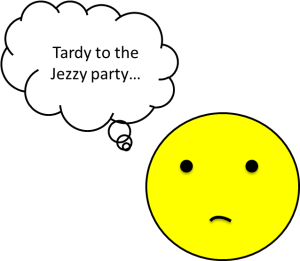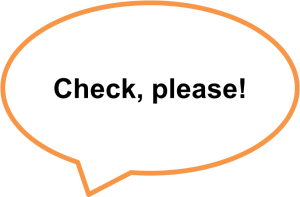Tag: unconscious bias
Why is it so hard to admit our privilege and biases?
Why is it so hard to admit our privilege and biases?
Nobody enjoys being called out for doing or saying something problematic. But in the absence of having wrong behavior brought to our attention, why is it so difficult to consider the ways we’ve received advantages or participated in systems that limit opportunities for others?
I recently read several great articles on these topics, and what they all point out in different ways is that at the root of the issue is fear.
Chris Boeskool published a 2016 Huffpost article, “When You’re Accustomed to Privilege, Equality Feels Like Oppression” that sums up the fear of losing what we’re accustomed to.
On the flip side, what is there to gain by admitting advantages – or lack of disadvantages – that we’ve experienced in our jobs, in our access to housing, and in our daily activities like shopping or exercising?
We might gain a new perspective and empathy for the ways that people can have different experiences than us. It might lead us to examine the way we treat coworkers, customers, or people we pass in the grocery store. Maybe, even if we think we’re already doing fine, it will lead us to do better.
“Do the best you can until you know better. Then when you know better, do better.” – Maya Angelou
Work Karma
 It used to really bother me that leaders who abuse their authority often succeed in the workplace while ethical workers who perform their jobs well can easily be marginalized by those in power.
It used to really bother me that leaders who abuse their authority often succeed in the workplace while ethical workers who perform their jobs well can easily be marginalized by those in power.
I wanted work karma to punish bad managers and vindicate people whose careers were screwed over. I wanted fairness.
But most workplaces aren’t set up to reward good work and punish bad behavior. People-management systems reward those who please the people with power over their careers. Performance objectives such as cutting costs, launching successful products, or closing sales contracts matter more or less depending on who’s in charge.
Subjective, unwritten expectations have greater impact on individuals’ careers. Along with everyone else, leaders include their biases, perceptions, and fears when they make decisions about employees.
Have you ever had a manager who seemed to value everything you delivered? They had an assumption that you’re a strong worker and noticed every indicator that supported this idea.
Unfortunately, it also works the other way. If a manager dislikes you or decides you’re a poor performer, there’s not much you can do to change their opinion. There are plenty of ways to find fault in accomplishments when someone is determined to focus on the negative.
I’m still frustrated when good workers are mistreated and corrupt leaders get ahead, but I don’t dwell on it. I’d rather put my energy towards aligning my work with my values.
Writing About the Writing on Jezebel
 I’ve only recently discovered Jezebel and now have the pleasure and pain of reading old articles that I’m too late to comment on. It’s like reading about conversations on topics I care about that took place at the most amazing dinner party that I didn’t know I had been invited to.
I’ve only recently discovered Jezebel and now have the pleasure and pain of reading old articles that I’m too late to comment on. It’s like reading about conversations on topics I care about that took place at the most amazing dinner party that I didn’t know I had been invited to.
The articles are well-written and sometimes shine a light on under-represented groups and the dark sides of societal norms. These pieces are especially interesting to me because I’m trying to be aware of situations when my unconscious biases need to be checked.
Since I’m too late to be part of the discussion in the comments, writing about them is the next best thing.
My favorite post from the past is “A College Freshman Turned in My Blog Post as His Homework” by Dodai Stewart. Stewart was notified by a college professor that a “…white male student attempted to get by on the intellect of a brown woman…by stealing her work on appropriation.” Stewart describes the incident and aftermath, and ponders how to respond to the student’s apology.
The plagiarized work was from Stewart’s piece “On Miley Cyrus, Ratchet Culture and Accessorizing With Black People”.
There are 854 comments on the post and almost all of them are insightful, informative, hilarious, or a combination of all three. When I was done, I felt like I’d read a book that wove together bits of information on college writing skills, plagiarism, flimsy apologies, cultural appropriation, and humor.
I’ve given up reading comments on most sites because the hatred expressed makes me fearful and depressed for the state of humanity. But Jezebel comments…so little trolling and the snark is good-snark. It’s smart without the “smarter than thou” tone.
I’ve got Stewart’s piece bookmarked so when I’m miserable from political campaigns and social network posts that read like hate speeches, I can return to a beacon of hope in the dark world of the interwebs.
Unconscious Bias in the Workplace
 I’ve been reading a lot about unconscious bias lately. It’s been fascinating to link from one article to the next, discovering research that provides a new lens to some of the work environments I learned about when conducting my own research of employees who quit their jobs. I heard plenty of stories from ex-employees who quit jobs where harassment, discrimination and violation of workplace policies were the norm instead of one-off incidents.
I’ve been reading a lot about unconscious bias lately. It’s been fascinating to link from one article to the next, discovering research that provides a new lens to some of the work environments I learned about when conducting my own research of employees who quit their jobs. I heard plenty of stories from ex-employees who quit jobs where harassment, discrimination and violation of workplace policies were the norm instead of one-off incidents.
Even when blatant acts of discrimination occur, if the people empowered to do anything about it (management) are unconsciously biased, they are likely to downplay the problems. “I have never seen anyone being discriminated against in our workplace.”
Of course you haven’t. If you’re not aware of a bias how could you see it?
Unconscious bias becomes a double whammy when it leads to bad behavior that is unchecked or worse, defended, because of the lack of insight. The effects can be seen in workplaces where raising a complaint can result in retribution, which is then also justified and disguised as performance problems. The victim is victimized twice. “You’re being too sensitive. You’re not a team player.”
Ugh.
What can you do when you see problematic behavior at work that others don’t? How do you eradicate a problem when people aren’t even aware that a problem exists?
You can speak up. I’m encouraged by the number of articles  and blog posts I’ve read on this topic. This LinkedIn post by Rachel Thomas was especially insightful, and it is where I learned about the Project Implicit site that I refer to below. You can ask your workplace to implement employee training, like Facebook and Microsoft recently did.
and blog posts I’ve read on this topic. This LinkedIn post by Rachel Thomas was especially insightful, and it is where I learned about the Project Implicit site that I refer to below. You can ask your workplace to implement employee training, like Facebook and Microsoft recently did.
You can also seek to uncover your own blind spots and then audit your behavior. Harvard hosts the Project Implicit site where individuals can test for hidden biases. I took multiple tests about gender, race and religion. Some of the test results disappointed me because they contradicted what I consciously tell myself about my beliefs. But that’s the point – to learn something I didn’t know about myself. Now I can monitor my thoughts and actions to reduce the potential that I will act on a negative bias without realizing it.
If you’re interested, the Project Implicit site describes their methodology and you can decided for yourself if you think your test results are valid.


Recent Comments